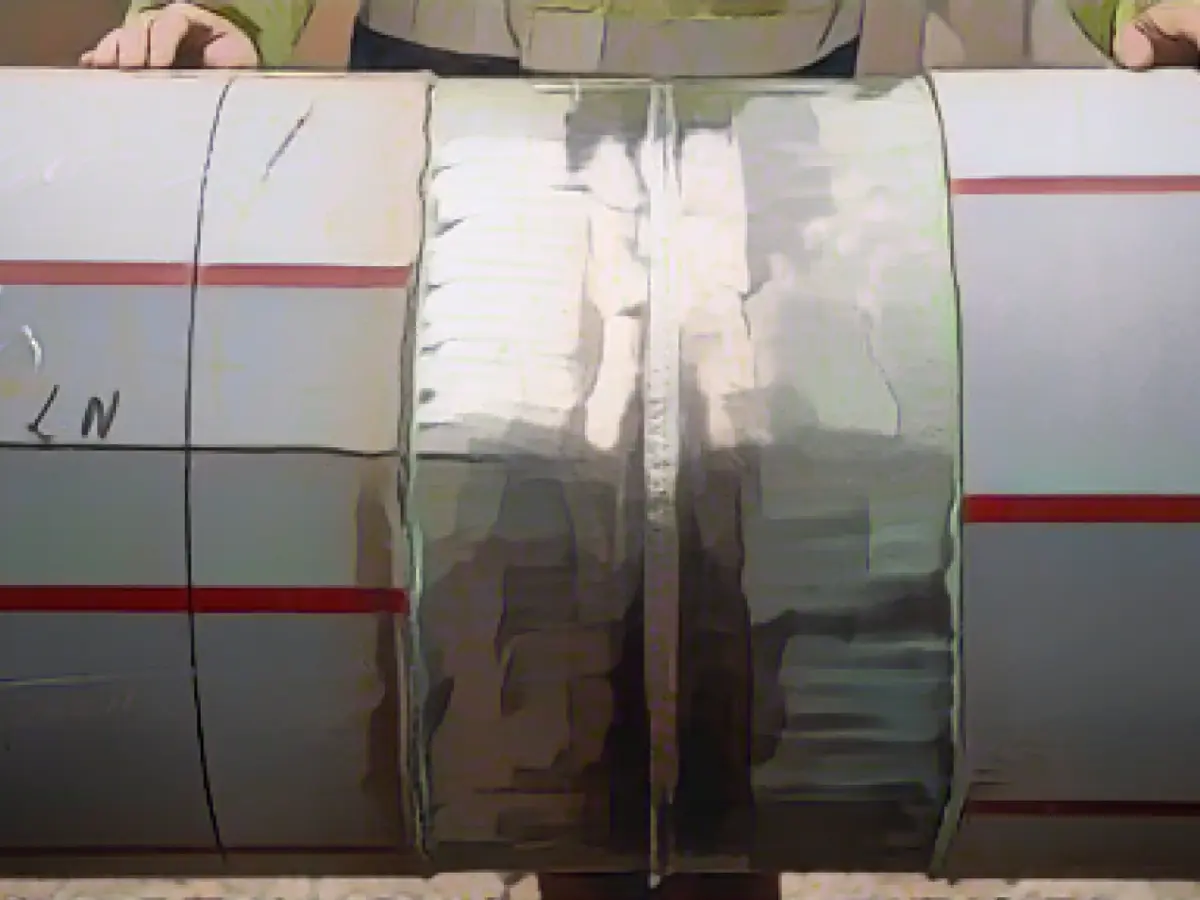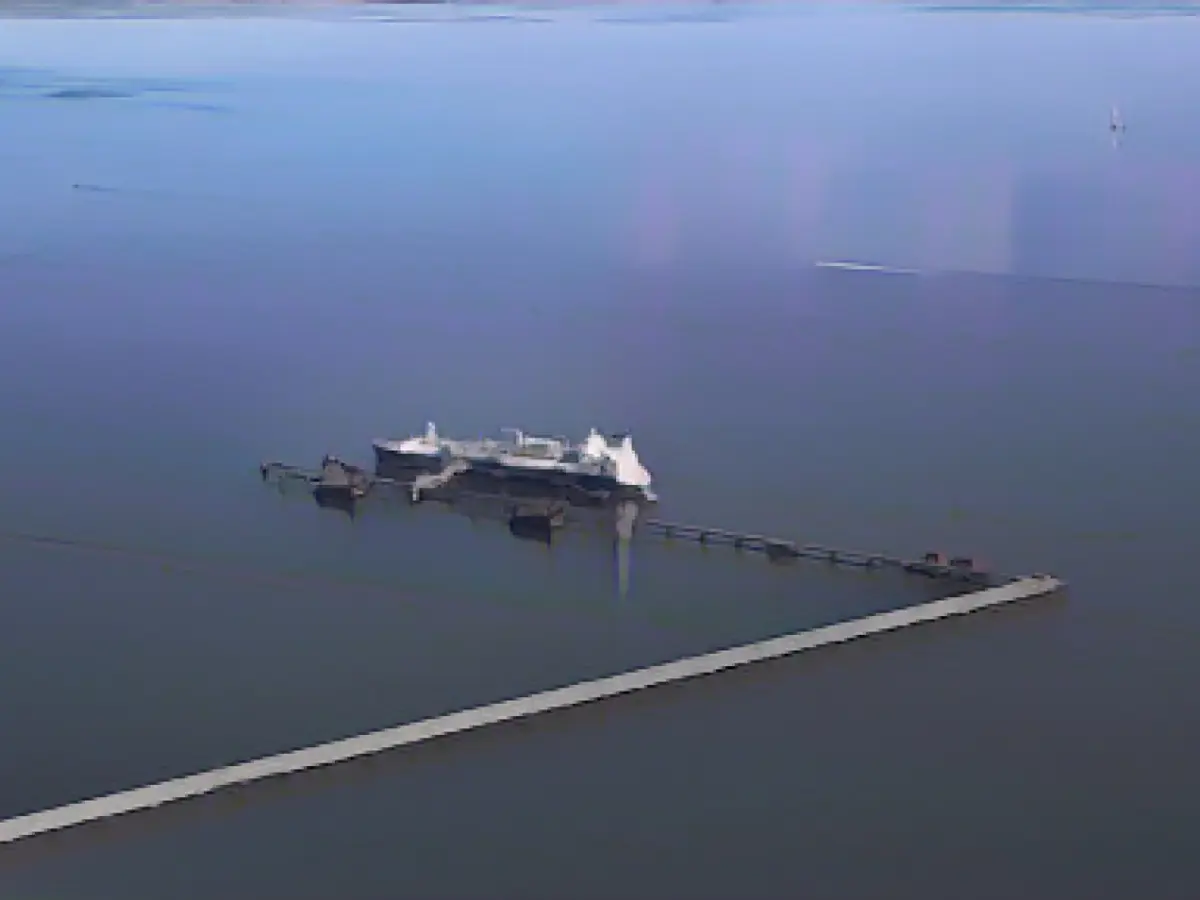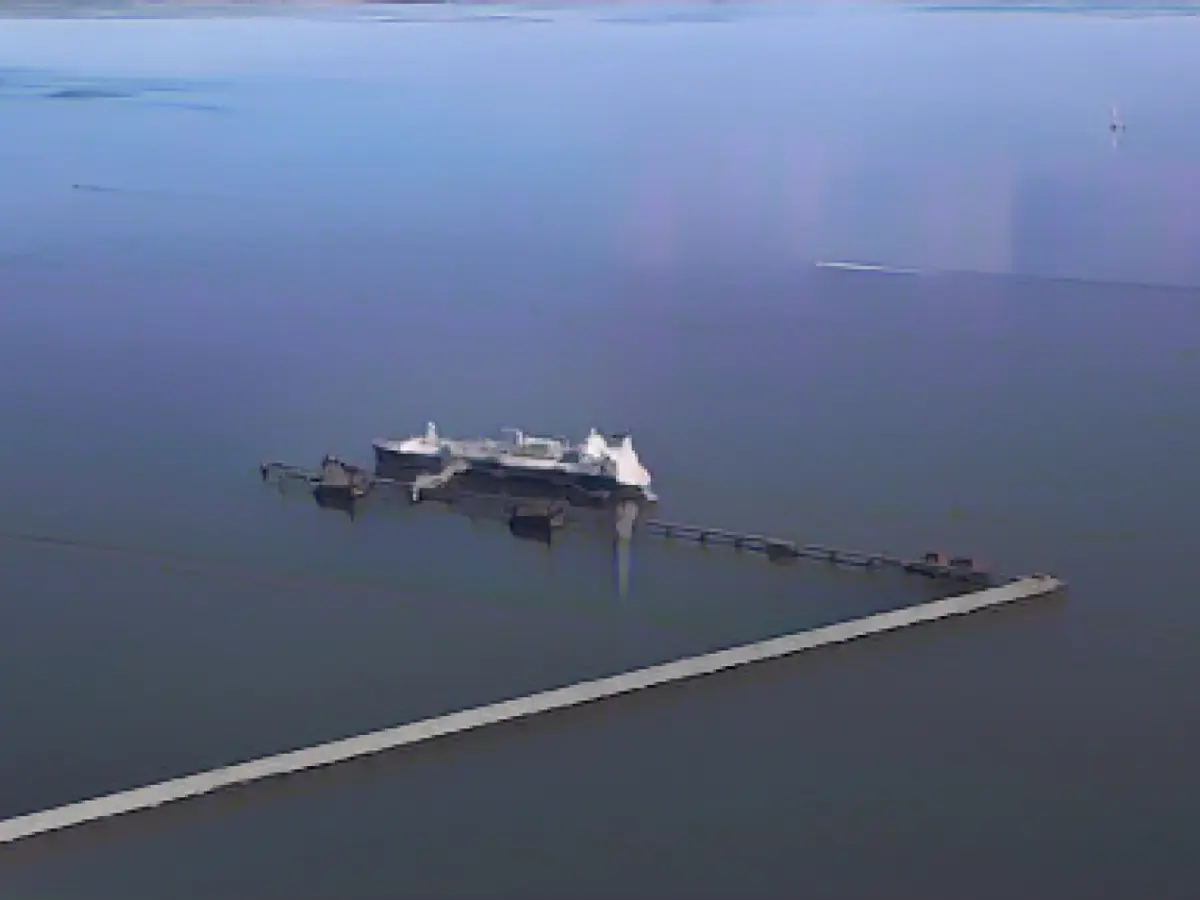Pipeline Progress: EWE Seals the Deal in Lower Saxony
After a nine-month construction stint, EWE, the energy supplier, has sealed the final connection for a gas pipeline in northwestern Lower Saxony. The groundbreaking event took place at a construction site in Westerstede, Ammerland, where the magical "golden seam" was welded, as announced by EWE on a chilly Thursday. This 70-kilometer pipeline will begin operation in early 2024, channeling liquefied natural gas (LNG) from Wilhelmshaven's terminal and the district of Leer into the extensive gas network.
The pipeline will have a capacity of six billion cubic meters per year, which equates to sufficient energy to power roughly four million homes. With the climate on everyone's mind, EWE is planning to shift from natural gas to green hydrogen in the future, courtesy of renewable energy sources.
Approximately a year ago, LNG started to make landfall in Wilhelmshaven via the initial floating import terminal. Kingpin of the gas grid, Open Grid Europe, had constructed the initial pipeline for this purpose the previous year. Now, the Wilhelmshaven-Leer pipeline, masterminded by EWE near Sande, has linked with the former and travels through the territories of Friesland, Ammerland, and Leer, ultimately reaching the district's gas storage facilities along the Ems. EWE has staked 200 million euros in this project.
Lower Saxony is positioning itself as a force to be reckoned with in Germany's energy sector, opined Economics Minister Olaf Lies, as he celebrated the culmination of the project. This pipeline serves as a vital cog in Germany's energy security and a sustainable, resilient, and affordable long-term energy supply. According to Lies, it is "a critical component for the success of our economy's transformation."
You might be intrigued by:
Insight HOW WE GOT HERE
While the growing need for natural gas imports for energy consumption has been driving construction projects like the one at Ammerland, Lower Saxony, the broader context points to Germany's dependence on relatively high fossil fuel imports, primarily gas from Norway and the USA, as it navigates Russia's invasion of Ukraine. Chancellor Olaf Scholz, however, has expressed support for the development of LNG export infrastructure in the USA, as it promotes lower energy prices and offers a viable, cost-effective solution during the transition period towards renewable energy sources.






